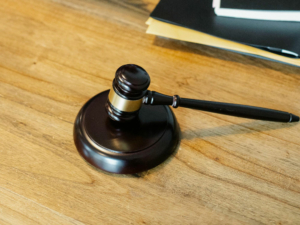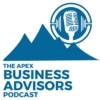Preparing for a Controlled Auction
 Be honest. Just hearing the word auction sets off familiar sounds in our heads: “$300 do I hear four, bid-up bid-up bid-up…” It’s exciting. While a “controlled auction” may not sound as exciting, nor will it feature said “bid-ups,” it’s an excellent way for businesses valued at $1M and above to accept possible interests and proceed to a sale that maximizes value for everyone involved.
Be honest. Just hearing the word auction sets off familiar sounds in our heads: “$300 do I hear four, bid-up bid-up bid-up…” It’s exciting. While a “controlled auction” may not sound as exciting, nor will it feature said “bid-ups,” it’s an excellent way for businesses valued at $1M and above to accept possible interests and proceed to a sale that maximizes value for everyone involved.
Preliminary Steps
As you might have guessed, a controlled auction is not a DIY process. You’ll want a professional to help you through the process, which includes:
- A marketing timeline: begin with the end in mind in terms of numbers and closing date
- Preparing a comprehensive buyer package
- Outreach to potential acquirers across multiple channels and platforms
- Execution of generic NDAs then a more specific NDA
- Offering preliminary details to interested parties
Indications of Interest (IOI)
After your M&A professional has done all of that, he/she will start gathering IOIs. Think of this as a dossier of “who we are, why we’re interested in you, and what we’re prepared to spend.” An IOI should include, but is not limited to:
- The credentials and philosophy of the acquiring individual or team
- Breakdown of working capital expectations
- Plans for current employees and management team
- Expectations of current owner participation post-sale
- A due diligence schedule and a list of required documents
- Target closing date
- Price range and transaction structure and the assumptions underlying them
- Additional issues (e.g. real estate, non-compete, licenses, etc.)
Narrowing Down the Candidates
With the IOIs in hand, the seller and broker can have calls and/or face-to-face meetings with the interested parties and move to the final stage, which is a submission of a formal LOI by a specific deadline. Competing offers puts a seller in a frame of abundance, allowing him/her to choose the best offer amongst ones that can value in total amount, structure, and cultural fit. It also puts the buyers on notice: they are not the only interested party; ergo they are on alert to put their best foot (and offer) forward, lest they lose out to someone more thoughtful (or aggressive).
A controlled auction isn’t for every type of business. As we said, most businesses that engage in this are worth at least $1M and may go up to $100M in value. Often, these businesses offer unique technologies, synergies, or market positions.
Just as business owners may have had decades building and growing a company but have had zero experience selling one, they will have even less experience running a controlled auction. The hidden weapon in the process will be your M&A specialist, who will leverage his/her expertise to guide you each step of the way, give you context for decisions, and offer second opinions on interviews and data when you are unsure.
Do you think a controlled auction might be the right fit for your business sale? Let’s chat.


